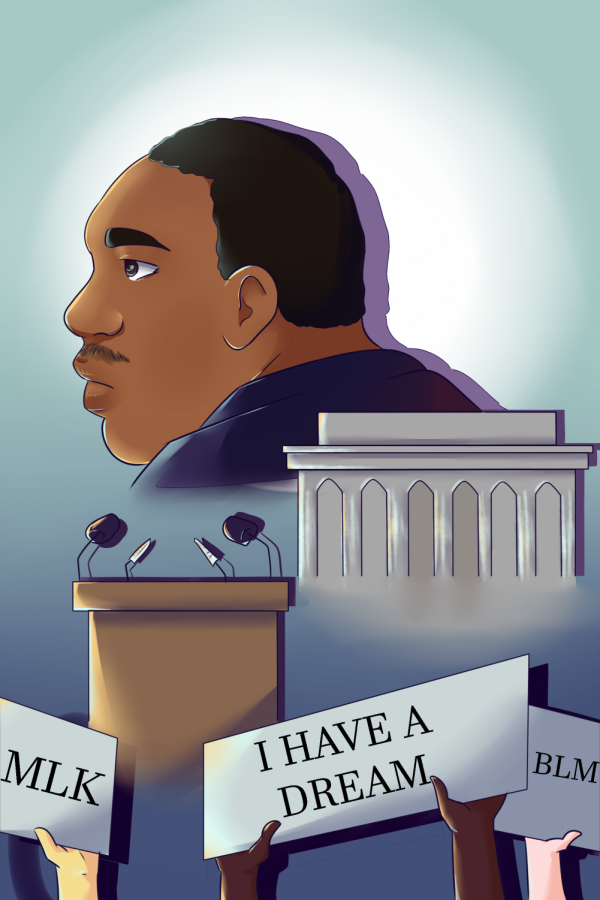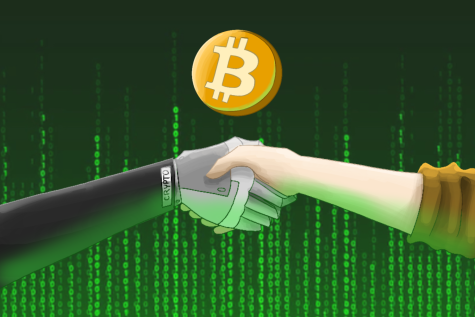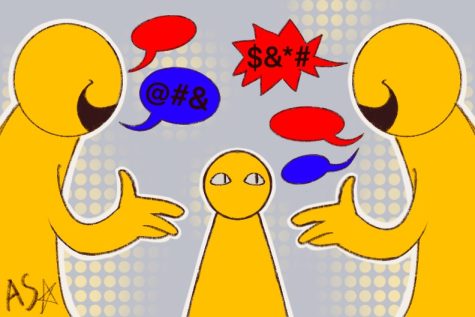Birthday of Civil Rights’ leader needs more truth recognition at local, national levels
January 18th marked the 92nd birthday of Martin Luther King Jr. But, for most Mountaineers, it simply meant a day off from school. Perhaps a more appropriate way to celebrate Dr. King’s legacy would be a “day on”.
In recent decades, America has observed the whitewashing of Dr. King’s views to create a more comfortable justification for the systemic injustices still present in this country.
King’s words have been weaponized into tools of repression, rather than those of revolution as he intended them to be. His famous quote: “Darkness cannot drive out darkness, only light can do that” has been used to disparage the Black Lives Matter protests.
Although the BLM protests happened after his time, King did express opinions on riots stating that “a riot is the language of the unheard. And what has America failed to hear?.. it has failed to hear that large segments of white society are more concerned about tranquility and the status quo than about justice, equality, and humanity.”
His message has always been clear, but many American would rather find comfort in a softer version of King, than acknowledge his strong, and often, controversial views.
When Ronald Reagan, a president who famously rolled back provisions that supported impoverished minorities, made Martin Luther King Day a national holiday, he did so not to celebrate King, but to twist his image into a government tool of repression.
“I think that recognizing MLK day is the bare minimum… Every year it is disappointing to see lawmakers praise Dr. King’s policies and ideas, then turn around and pass legislation that actively works against everything he fought for,” said freshman Ella Hogan.
The lack of education American students receive about the Civil Rights Movement in America is, frankly, embarrassing. Schools often teach about the historical figures Martin Luther King Jr. and Rosa Parks, but overlook leaders such as Malcom X and John Lewis.
Freshman Teagan Hoey-Brown agreed.
“What schools get right about MLK is that he was an important part of the black Civil Rights movement… However, what they get wrong was that he is typically honored as the only one of his kind, ignoring other influential figures like Malcom X,” said Hoey-Brown. “They also don’t seem to hit how much the US government hated him and tend not to use any pictures in color to make the event seem as if it was much longer ago than it was.”
Americans need to seriously examine the way they preserve the legacy of Civil Rights and the way they deal with the country’s problematic past – and much of this work begins in schools.
“It might be a good idea for Wachusett to give some sort of public announcement that informs its community about the meaning of MLK day to clear up misconceptions and questions about the subject and the kind of movement that it has and will continue to support,” said freshman Keith Angelescu.
In a year of political unrest, insurrection, and activism, the words of Civil Rights leaders such as Dr. King have gained new relevance. It is therefore imperative that this country attains awareness of the full story, rather than simply accept the simplified narrative provided for us. For only when we understand, can we move forward.

Luchian, a senior, has been working with the Echo for two years and loves being in nature- gardening, hiking, biking- and also enjoys reading.













